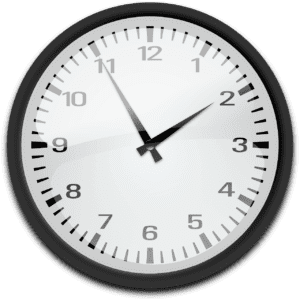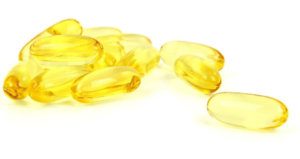Benefits of Omega-3s While Intermittent Fasting.
Do you know any benefits of Omega-3 while intermittent fasting? As you may already know, many people do intermittent fasting for a number of reasons. Some people fast in order to try to lose weight, some just want to control their caloric intake and others just want to feel a little bit healthier because they heard of all the health benefits of intermittent fasting.
For a number of people, intermittent fasting presents a set of challenges, particularly with regard to nutrient intake. Not only that but also some people report feeling hungry during a fast, especially if they have not tried intermittent fasting before.
 If you would like to try intermittent fasting, you may be wondering about supplementation, particularly if you feel that you may be deficient in some nutrients. In particular, you may wonder about the positive effects of Omega-3s on the body while fasting.
If you would like to try intermittent fasting, you may be wondering about supplementation, particularly if you feel that you may be deficient in some nutrients. In particular, you may wonder about the positive effects of Omega-3s on the body while fasting.
You may also be concerned about whether or not it is safe to take Omega-3s on an empty stomach during a fast.
Let’s take a closer look at what Omega-3s are. Then, we will discuss some tips for taking Omega-3s as well as the benefits of Omega-3s while fasting.
What are Omega-3s?
 Omega-3s are also known as omega-3 fatty acids, which are found in certain foods, the human body, and supplements (Hopp & Shurtleff, 2018). For those who may not know, omega-3s DHA and EPA are typically found in seafood (Hopp & Shurtleff, 2018).
Omega-3s are also known as omega-3 fatty acids, which are found in certain foods, the human body, and supplements (Hopp & Shurtleff, 2018). For those who may not know, omega-3s DHA and EPA are typically found in seafood (Hopp & Shurtleff, 2018).
DHA is docosahexaenoic acid while EPA is eicosapentaenoic acid. (Hopp & Shurtleff,2018) also point out that there are a number of different supplements that contain Omega-3s including fish oil, fish liver oil, krill oil, algal oils, and flaxseed oils.
Omega-3s have become very popular because they offer a number of health benefits. A number of studies have shown that Omega-3s have a positive impact on the central nervous system by supporting its development and function (Perica & Delas, 2011). DHA intake also has an impact on the development of the brain and vision (Harris & Baack, 2015).
Now that we are familiar with Omega-3s and their impact on our health, let’s examine why we should take Omega-3s while fasting as well as discuss some tips for taking Omega-3s.
Tips for taking Omega-3s while intermittent fasting.
 There are many different versions of intermittent fasting and some of the most common ones are 16:8, 20:4, and OMAD.
There are many different versions of intermittent fasting and some of the most common ones are 16:8, 20:4, and OMAD.
The 16:8 intermittent fasting method is where you fast for 16 hours of the day and eat throughout 8 hours during that same day.
The 20:4 intermittent fasting method is when you can eat for 4 hours during the day but you are fasting for 20 hours.
 The OMAD diet is very simple because it stands for “one meal a day”. If you are following any kind of intermittent fasting diet, you may be wondering if taking Omega-3s will break your fast. However, if you are following any of the aforementioned fasting methods, then you should try to take your Omega-3s during your eating window or with a meal.
The OMAD diet is very simple because it stands for “one meal a day”. If you are following any kind of intermittent fasting diet, you may be wondering if taking Omega-3s will break your fast. However, if you are following any of the aforementioned fasting methods, then you should try to take your Omega-3s during your eating window or with a meal.
While taking Omega-3s on an empty stomach is not dangerous, everyone’s bodies are different and some people may get a little bit queasy. If you do decide to take Omega-3s on an empty stomach, you may want to reduce the dose if you find yourself getting queasy.
However, for best results, Omega-3s should be taken with your meal. The 16:8, 20:4, and OMAD make it extremely easy for you to schedule your consumption of Omega-3s, especially if you are very strict about your fasting period.
Benefits of Omega-3s while intermittent fasting.
When you fast, depending on the foods that you consume during your eating window, you may find that your diet lacks Omega-3s. Let’s face it, if you haven’t eaten for 20 hours, you most likely do not feel like eating seafood, unless you absolutely love it.
While most people try to consume nutrient-dense foods during their eating window as they practice intermittent fasting, they may not always be successful. Therefore, supplementation with Omega-3s will help reduce the likelihood of deficiency while fasting.
As you may already be aware, many people’s diets are already deficient in Omega-3s. Omega-3s are beneficial for heart, brain, and eye health. Omega-3s will help support your cognitive health. Not only that but also, taking Omega-3s will help reduce the risk of developing depression and anxiety.
During your fasting window, you may feel hungry and irritable, particularly if you are new to fasting. Feeling irritable when hungry is a very common problem for many people. Some research shows that Omega 3 fatty acids help to decrease irritability and elevate your mood (Sagduyu et al., 2005).
If you are at work and are fasting, you definitely do not want to show your coworkers that you are feeling irritable. Therefore, taking Omega 3 fatty acids will help make it easier for you to get through your fasting window.
Let’s conclude how omega-3s can be beneficial to your body while intermittent fasting.
If you are planning on intermittent fasting, you should consider taking Omega-3s. Omega-3s are also known as Omega-3 fatty acids.
 There are two main Omega-3 fatty acids, including docosahexaenoic acid (DHA) and eicosapentaenoic acid (EPA). Although there are many other sources, fish oil is the most common supplement that contains Omega 3 fatty acids, particularly for those who don’t like seafood.
There are two main Omega-3 fatty acids, including docosahexaenoic acid (DHA) and eicosapentaenoic acid (EPA). Although there are many other sources, fish oil is the most common supplement that contains Omega 3 fatty acids, particularly for those who don’t like seafood.
If you are following either the 16:8, 20:4, or OMAD fasting method, you should try to take your Omega-3s during your eating window. However, Omega-3s are also safe to take on an empty stomach and most people would agree that you will not break your fast when you do so.
As you may know, if you are fasting, there is a possibility that you could become deficient in Omega-3s particularly if you do not normally consume seafood.
 There are many different health benefits of Omega-3s which is why you should continue to take them even if you are fasting. Omega-3s have a positive impact on heart, eye, and brain health.
There are many different health benefits of Omega-3s which is why you should continue to take them even if you are fasting. Omega-3s have a positive impact on heart, eye, and brain health.
Not only that, but they also help to elevate your mood and combat irritability, particularly if you are irritable when you feel hungry during your fasting window. As you can see, taking Omega-3s while fasting is definitely worth it.
REFERENCES:
- Harris, W. S., & Baack, M. L. (2015). Beyond building better brains: bridging the docosahexaenoic acid (DHA) gap of prematurity. Journal of perinatology : official journal of the California Perinatal Association, 35(1), 1–7.
- Hopp, D.C., Shurtleff, D. (2018). Omega-3 Supplements: In Depth. National Center for Complementary and Integrative Health.
- Perica, M. M., & Delas, I. (2011). Essential fatty acids and psychiatric disorders. Nutrition in clinical practice : official publication of the American Society for Parenteral and Enteral Nutrition, 26(4), 409–425.
- Sagduyu, K., Dokucu, M. E., Eddy, B. A., Craigen, G., Baldassano, C. F., & Yildiz, A. (2005). Omega-3 fatty acids decreased irritability of patients with bipolar disorder in an add-on, open label study. Nutrition journal, 4, 6.


